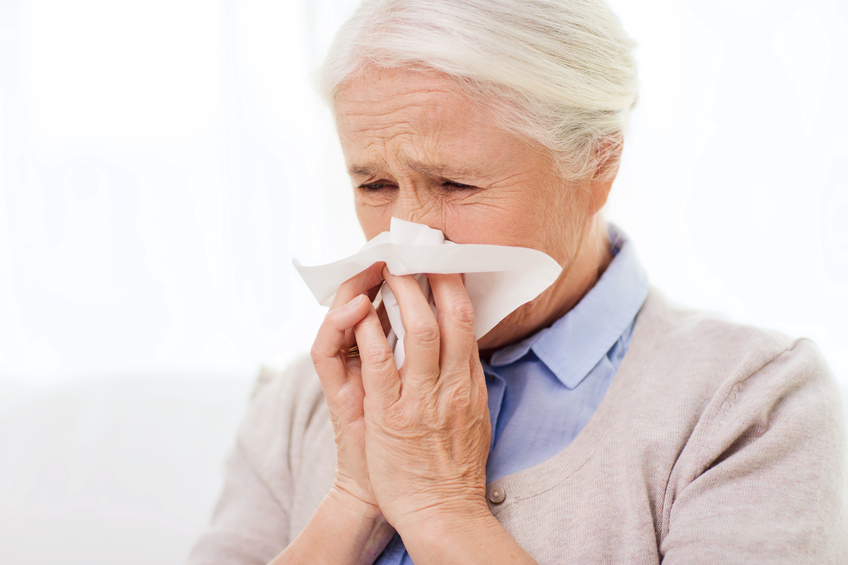Seniors and caregivers tend to be well educated about flu prevention as the cooler weather approaches, and older adults are now encouraged to vaccinate against pneumonia but Respiratory Syncytial Virus (RSV) can also be concern for not only young children but also adults over the age of 65.
According to the Centers for Disease Control and Prevention, RSV kills about 14,000 older adults each year in the United States. There is currently no vaccine for RSV, which is spread through coughing and sneezing or by touching surfaces contaminated with the virus. RSV may start with cold-like symptoms but can lead to bronchiolitis or pneumonia which can sometimes require hospitalization and can be life threatening.
If you are ill or have cold-like symptoms, stay away from seniors who may be a greater risk for RSV infection. People infected with the virus are usually contagious for 3 to 8 days but those with a weakened immune system can transmit RSV for up to 4 weeks. And the virus can live for several hours on hard surfaces.
Prevention
- Cover coughs and sneezes with a tissue
- Wash hands often
- Keep hands away from eyes, mouth and nose
- Stay home from school or work when sick
- Do not kiss older adults if you have been sick
- Do not share cups or utensils
- Thoroughly clean and disinfect surfaces including doorknobs to help stop spread of RSV
See your doctor if cold symptoms such as fever, reduced appetite, runny nose, cough or wheezing do not resolve after several days or worsen. See a doctor if it becomes difficult to breathe.
Fore more information visit www.cdc.gov .






Add Your Voice
0 Comments
Join the Discussion